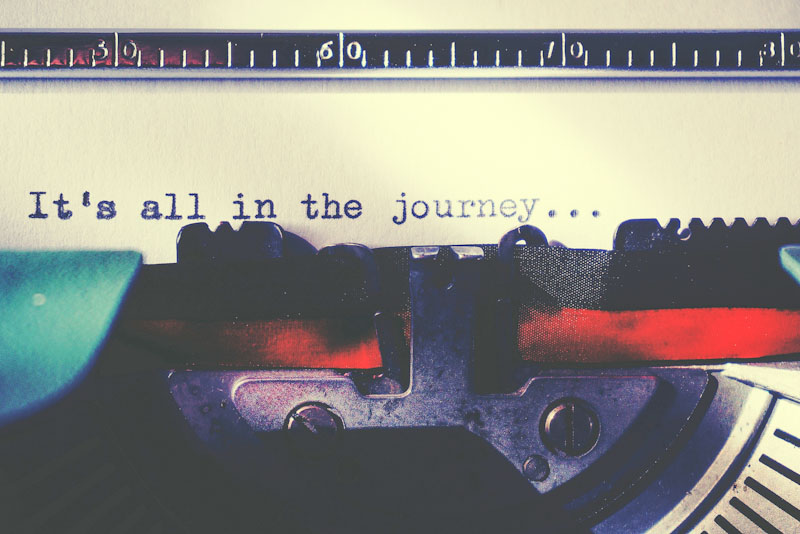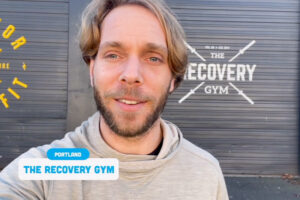The Surprising Benefits of Journaling Your Next Chapter in Recovery
Believe it or not, journaling your thoughts can improve both your mental and physical health. It's also a personal, creative way to work through recovery — let's get started!

Some people do yoga to rebalance their seven chakras, others run miles in the mud, and maybe a few of us diligently pop bubble wrap to release and focus our energies. It’s important, in recovery, to have these kinds of outlets for stress, anxiety and pain, and to create channels to move our emotions through! With drugs and alcohol out of the picture, we might also suggest another outlet: journaling.
We see you reaching for the bubble wrap sheet at the mere mention of it — but journaling doesn’t have to be complicated! It doesn’t even have to be “writing.” Putting a pen to paper (or a stylus to a notes app) for a few minutes and letting out whatever comes to mind can be a great way to clarify your feelings and harmonize your thoughts.
If you try journaling for a few minutes each day, it can become akin to meditation, bringing you into the present moment with compassion and awareness. It’s a mindfulness practice, and with some time and practice, it can help you clear the way toward a more authentic and fulfilling life. Like other mindfulness practices, it helps you declutter the mind — and even has a positive effect on the body.
I’m Skeptical. Why Journaling?
An essential part of making journaling work for you is using the process to better digest and understand your emotions. Developing a routine where you can sit with and organize your thoughts and feelings can help you develop a healthier emotional outlook and response.
You may find that a consistent writing (/scribbling) practice becomes a wellspring of well-being and inner strength; you may find it just helps you make sense of mess. Regardless, recent research keeps turning up new benefits to keeping a journal.
Benefits to the Mind
Journaling has been a plus for mental health since long before anyone called it “mental health”; people have been doing it for thousands of years. It can …
- Increase your ability to be mindful and present
- Increase your self-awareness
- Draw out your compassion for others, improving relationships
- Boost your capacity for emotional processing
- Decrease symptoms of emotional and mental distress, such as anxiety and depression
Increasing your focus and sense of presence makes you more likely to experience life from a more empowered perspective. Increased self-awareness can improve your ability to communicate and express yourself with confidence and compassion. Extending this grace to others becomes easier, making for more peaceful social dynamics. In addiction and early recovery, these abilities often elude us. But you’re sober now.
You may also find you ease some symptoms of mental distress. For example, writing down your thoughts and emotions can improve your outlook. It’s quite nice to sit with our emotions and process them in a quiet, comfortable place, rather than allowing them to consume us.
Benefits to the Body
Researchers have also begun to link journaling to improved physical health, perhaps surprising for a sedentary activity. A few physical benefits of journaling that have been studied:
- Lowered levels of cortisol (and the associated the mental and emotional imbalances the hormone can cause)
- Improved immune system functioning
- Reduced blood pressure
- Improved lung and liver functioning
- Decreased severity and duration of symptoms across many physical ailments
By decreasing stress hormones such as cortisol, journaling can help you release emotional pain, particularly if it’s been building over time.
Your stress levels directly impact your immunity; lower stress equals better immune responses. The emotional release from journaling has also been linked to a reduced intensity of pain and inflammation in the body.
Jot That Down: How To Start Journaling
We weren’t kidding when we called it scribbling: Pretty much any kind of written expression can be “journaling,” so there’s really nothing to stop you from getting flowing. Depending on your needs and style, you may prefer quick jots or more focused and intensive writing sessions. Here are a few ideas to consider as you add journaling to your daily routine. (And here are a few more.)
Choose Your Words
Many people find it useful to consider the language they use in their writing. Journaling may be more therapeutic if you aim for words and phrases that encourage thoughtful reflection to avoid negative cyclical thinking. The goal is to process the cause and effect of things instead of overwhelming yourself with stressful and even traumatic thoughts.
Journal Prompts
Some journalers like to answer questions or follow prompts to help guide their thoughts. These can provide structure, organization and, ultimately, emotional clarity.
Journal prompts can also help you formulate a thought process that supports your growth and well-being. Prompts give you somewhere to start and get comfortable with journaling.
Free-Writing Sessions
Or you may be more into freestyle. Eliminating structure can make writing more of an exploratory experience, opening yourself up to what your mind has to offer. Allow your imagination to run the show, and you might be surprised by the insights into your thought patterns.
And More!
You can, of course, combine these writing styles or explore your own form of regular self-expression. You can doodle or write poetry, songs or stories. You’re going to be hearing your thoughts and talking to yourself a lot in recovery from addiction, so you might as well make yourself comfortable.
Unlike other great recovery tools and resources, journaling is just for you. The primary goal is to support your authentic expression. As you practice expressing yourself, you become more consistent and confident in your expressions. You can develop a sense of balance and freedom that translates into how you live your life.
You won’t know if journaling is for you unless you try — and you can try pretty much immediately, at any point in your recovery. Write on!
More Lifestyle
The Joy of Baking (Sober)
Two months sober, Annie Zimmerman decided to make cookies. Now, her hobby turned passion yields fulfillment, connection and delicious soberversary cakes. Read the interview!
Sure-Bet Sober Date Ideas
Ready to get back out there? Sober dating isn't so hard. But here are a few pointers anyway, to help you find your groove.
Now Elite NFL Players, They First Tackled Addiction | News Roundup
All Sober compiles the best of the latest headlines. Here's your addiction and recovery news for the week of Feb. 19, 2024!
All Sober in Chicago
A great town for recovery, come sun, rain or snow! Check out our video guide to the Windy City's best sober options for bars, bottle shops — and even an arcade with vintage games.
All Sober in New York
The Big Apple truly has it all — including a sober bar with a "witchy vibe" and an array of enchanting non-alc cocktails. Take a peek in our video guide to the sober city!
All Sober in Portland
Oregon's cultural capital may be weird and proud, but it's sober and proud too! We scoped out the coolest sober-friendly spots in our new video guide.
Running Toward Recovery
Seeking purpose in early recovery, Annie Zimmerman rekindled an old fire with distance running — and found it carried her through some of her toughest trials in sober life.
Delicious Nonalcoholic Drinks Recipes for a Classy (or Cozy) Winter's Eve
Mixology stars Derek Brown and John deBary have refined the art of sober-friendly, zero-proof concoctions for grown-ups. They shared some favorite recipes for the season with All Sober.










